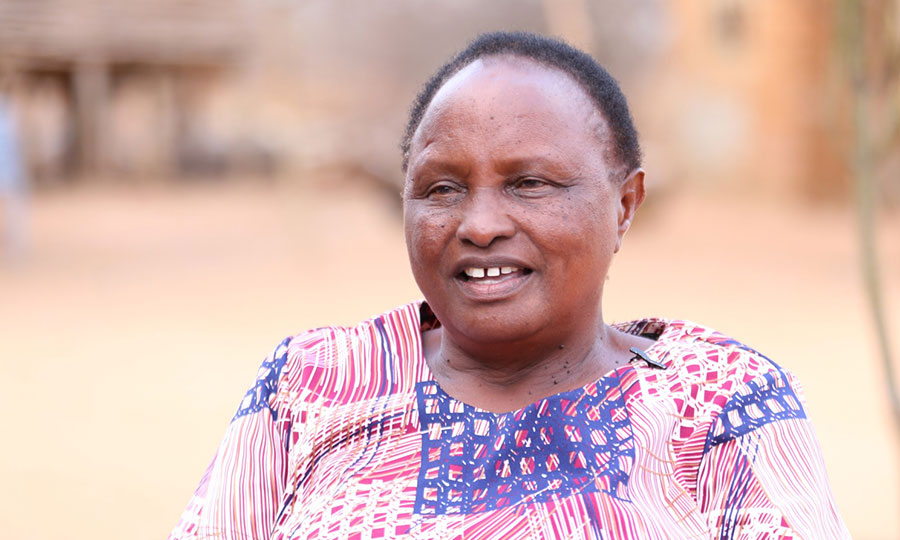Cervical Cancer Is Treatable: A Survivor Reflects

Veronica Matheka, a 63-year-old retired nurse from Kiangu sub-location in Kitui county, Kenya
Cervical cancer is the second most common cancer in Kenya after breast cancer. Mortality rates continue to rise due to limited access to health services, lack of awareness, and absence of screening and treatment programs. Women living in rural and impoverished areas are at an increased risk of invasive cervical cancer because they often do not have access to crucial prevention, screening, and treatment services. With early detection, cervical cancer can be better managed and treated.
Veronica Matheka, a 63-year-old retired nurse from Kitui County, Kenya was diagnosed with cervical cancer in 2014. She underwent surgery and intense radiotherapy. It was not an easy journey, but today she is cancer free. Below she shares her story and explains how she continues to fight cervical cancer in Kitui as a survivor.
Veronica’s Story
I completed treatment in early 2015 and recovered completely. It has been seven years since I was last treated for cervical cancer. I recovered quickly because I began treatment immediately.
I am a widow. I have lived with my kids alone here in Kiangu since 1996. The distance between Kiangu to Nairobi is approximately 289 kilometers. It is quite far. I had to travel all the way to Nairobi for treatment because there is no health facility around Kiangu that offers that service. Traveling to Nairobi was hectic as there was only one bus to Nairobi. Missing the bus meant missing doctor appointments and treatments. That also meant that I had to stay away from my children for a long time while undergoing treatment. I also had to take an unpaid leave from my nursing job and look for alternative accommodation in Nairobi while seeking treatment.
The other challenge was getting referrals for good doctors. I am grateful that I eventually found good doctors who encouraged me and made me believe that I could be healed. I believed them, I got treated, and I am now well. Cancer strained my family relations. It was a burden to inform my kids that I had cancer when I was first diagnosed because I feared they would despair, and I didn’t want that for them. When I began seeking treatment and was progressing well, I had the courage to inform them. I received a lot of support from them, and this made healing easier. I was able to source funds for treatment and that lessened the burden for me.
Having battled cancer, and being cancer free since 2015, I founded a cancer support group in Kitui to support women battling cancer by sharing my experience with them. I do this by educating them on how to handle themselves when they have been diagnosed with breast or cervical cancer. Usually, the newly diagnosed do not know where to go and how to approach the disease. I also received training on palliative care, so I can empower women. I can advise them on how to journey with cancer and how to overcome the challenges that come with cancer.
As a trained medic and cervical cancer survivor, I would advise those eligible for the HPV vaccine to go for vaccination. I call upon guardians to take their daughters for HPV vaccination, as it helps prevent cervical cancer. Women should go for regular check-ups because when detected early, cervical cancer can be treated. I went back to work after the treatment. I am now retired. Cancer is not a death sentence. If you are diagnosed earlier, you can move on. I am moving on.
To bridge gaps in accessing health services, CMMB Kenya, in collaboration with Bristol Myers Squibb Foundation (BMSF), National Cancer Institute – Kenya, and the County Government of Kitui, is intervening to improve access to cervical and breast cancer care for communities in Kitui South and Central Sub-Counties. Our three-pronged approach entails, improving community awareness, strengthening health systems, and improving palliative care and survivorship.